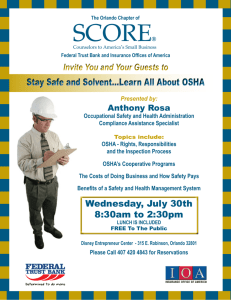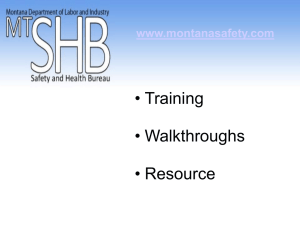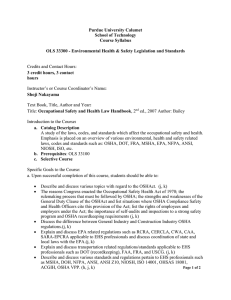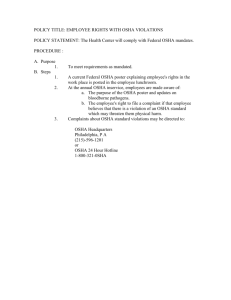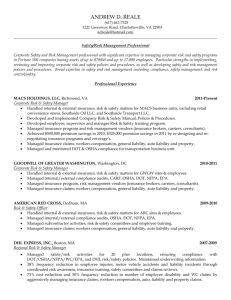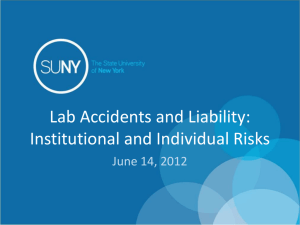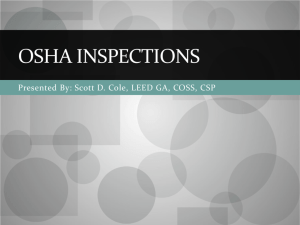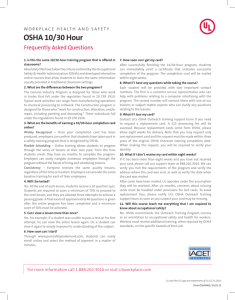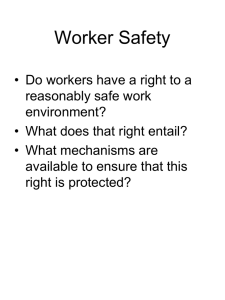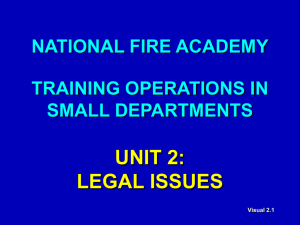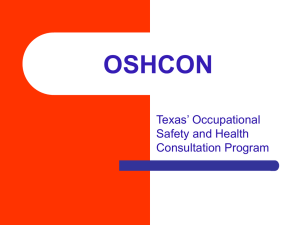Personal Liability for Safety Professionals
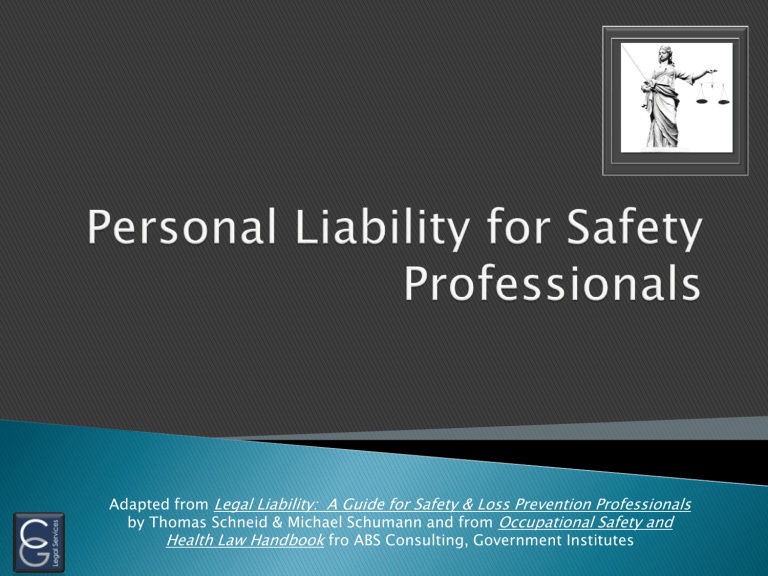
Adapted from Legal Liability: A Guide for Safety & Loss Prevention Professionals by Thomas Schneid & Michael Schumann and from Occupational Safety and
Health Law Handbook fro ABS Consulting, Government Institutes
Roles & conflicts
Criminal sanctions
Protecting yourself with paperwork
Protective theories
Class exercise – Personal Risk Assessment
Decisions affect health, safety & personal welfare
Conflicting duties
◦ Management
Cost concerns
◦ Employee welfare
Unions
Expanding workload
Mistakes = professional & personal problems
Increase in use by OSHA
◦ DOJ represents OSHA
◦ Willful violations – plain indifference, not intentional disregard
◦ Advanced notice of inspections
◦ Knowingly false statements, representations or certifications
State criminal codes
◦ Must be approved by OSHA
Or have general applicability (traffic & fire codes)
Environmental statutes
◦ No death requirement
◦ Knowing or negligent conduct
◦ EPA and OSHA MOU for joint inspections, referrals and information exchange
For when disaster strikes and the bombs start falling
Document details of every action
◦ Management not committed to safety
◦ Compliance is not possible
Include correspondence, email, documentation of phone calls, minutes of meetings, denial of funding, etc.
Aids with credibility and memory
◦ “Past recollection refreshed”
Hindsight is 20/20
3 for civil liability
◦ Indemnification
Protection by company for actions within scope of employment
Company pays legal fees, penalties and damages
◦ Insurance
Creates ‘deep pockets’
Not available for criminal protection or willful actions
Can be very expensive
◦ Minimal assets = “Can’t get blood from a turnip”
Puts what you do have at risk
1 for criminal liability
◦ Compliance
“there is no substitute for a safety and health program that is in compliance with the OSHA standards”, Legal Liability, p. 194
